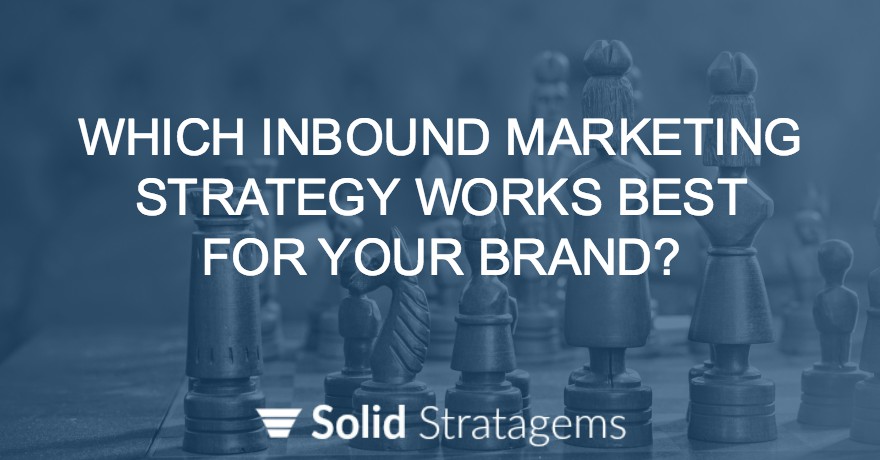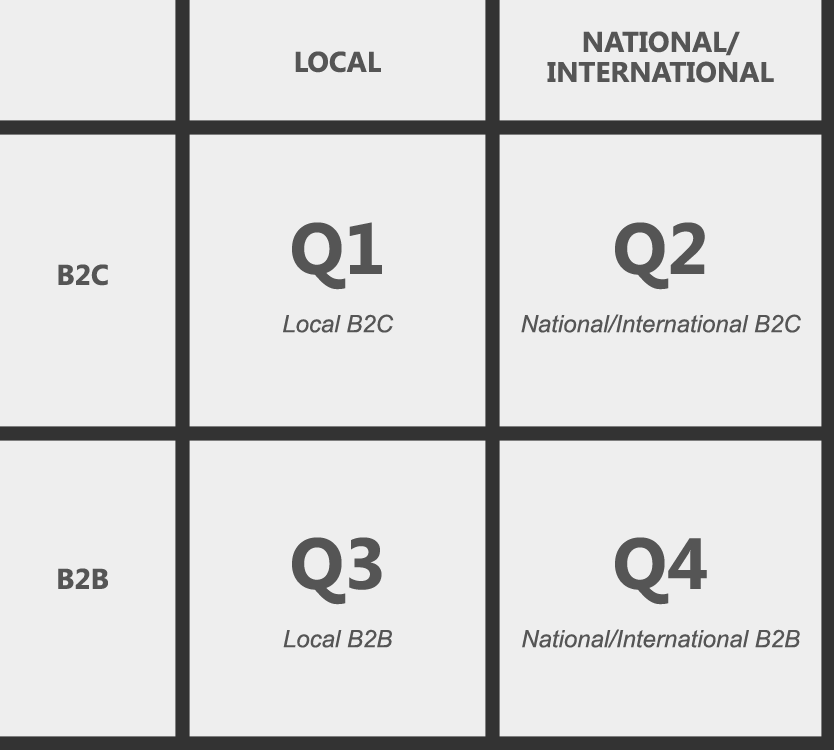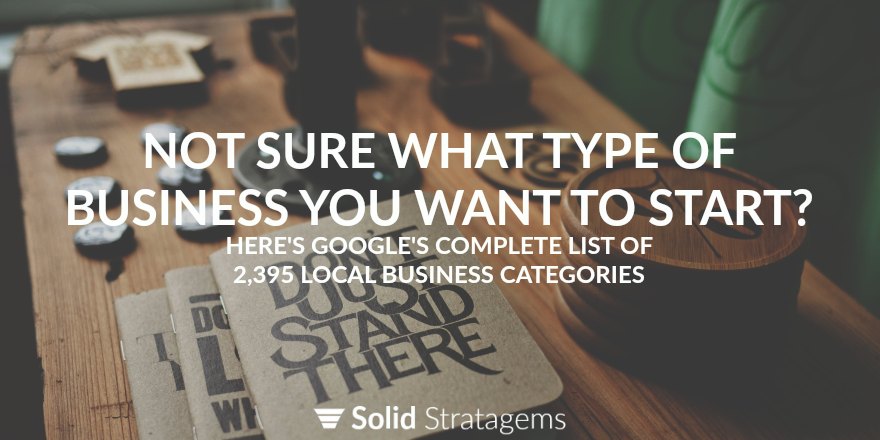Definitions: Inbound Marketing vs. Outbound Marketing
Inbound Marketing:
Marketing efforts that aim to help brands be found and favored by potential buyers who are presently searching for (commonly via search engines) and preparing to purchase certain products and/or services.
Examples include:
- Web pages that have relevant content.
- Search engine optimization.
- Google Business profiles.
- Business profiles on review sites.
- Google Ads
- Conversion rate optimization.
- Providing excellent service (an oft-ignored inbound marketing effort. Yes, people turn to search engines for many needs, but often turn to friends to ask for recommendations).
- Remarketing
- Email marketing
- And the dying Yellow Pages
Outbound Marketing:
Marketing efforts that aim to persuade, lure or convince potential buyers to make a purchase (commonly by promoting discounts with deadlines) of certain products or services.
Examples include:
- Social media advertising
- Digital display ads
- Billboards
- Radio and TV Ads
- Postcards
- Newspapers and magazines
Which Brands Must Focus on Inbound Marketing
Unless your brand has developed an innovative product or service that nobody knows about (in other words there is already a market for your product or solution), you must HANDS DOWN prioritize inbound marketing efforts over outbound marketing efforts.
If you are supplying an innovative offering then outbound may be the necessary path to demand generation.
Are there exclusions (besides innovative products/services) to this rule of prioritizing inbound?
Not really.
But…
There are two reasons outbound could get you the ROI you want:
- You opt for extremely targeted outbound marketing.
- Your offering is something nearly everyone who will see/hear your ad needs. This is why food brands, car insurance and cell phone companies still love tv ads.
The Benefits of Inbound Marketing
Why should brands prioritize marketing towards “potential buyers who are presently searching for and preparing to purchase” over aiming to “persuade, lure, or convince” others to make a purchase? Well, here’s several reasons companies that prioritize inbound don’t look back.
#1 Competitors Market For You
This is one of craziest (and best) benefits of inbound marketing! Companies that focus on inbound marketing actually increase sales when their competitors run outbound marketing campaigns. How does that work? It’s simple really. In a previous life, I owned a pest control company. Each spring several of my 86 competitors would run radio ads and send out door to door salesman. I always knew exactly when they would start their outbound marketing campaigns because traffic to our website would spike overnight. Apparently a lot of people who hear radio ads end up going online and finding their best options. I know I do.
#2 Great Returns in A Good Economy
At first glance, this one looks obvious, but there’s more to it. When the economy is strong, advertising and media companies do very well and raise prices, keeping the returns on investment (ROI) subpar. Inbound marketing costs don’t shoot up in a strong economy. This allows for an above average ROI.
#3 Great Returns in A Bad Economy
During the great recession, I was the owner of a local pest control company. Those were tough years for many of my competitors. A competitor just a few minutes down the road closed up shop. Meanwhile, our business was good and growing. I learned the valuable lesson that recessions cause homeowners and business owners to look at their budgets and reconsider their options. My company benefited from the fact that searches for “pest control” actually increased during the recession.
#4 A Much Better Return On Marketing Dollars
If you’re a national company with a very broad audience some types of outbound marketing may be a good choice. For companies that do business locally or to niche markets, inbound marketing can provide returns that are far superior to the returns outbound efforts offer.
#5 Competitors Find It Difficult To Get The Superior Returns
Not every company that engages in inbound marketing succeeds. Companies that rank very high in search engines for their industry’s most profitable searches can make inbound marketing very frustrating for competitors. The frustrated competitors are forced to spend money on outbound marketing which drives traffic to the companies on top.
#6 Attract Happier Customers
In my opinion, one of the greatest and most important benefits of inbound marketing is that it attracts happier customers. On the other hand, companies that focus on outbound efforts, deep discounts and sales teams to persuade people to purchase, end up with less happy customers that may experience buyers remorse. This can actually become a customer service and reputation management nightmare.
#7 Competitors Don’t Attract The Happier Customers
Anyone who’s worked in customer service or reputation management knows the value of happy customers. It’s HUGE! Inbound customers are happy customers. You should do everything you can to scoop up all the happy customers possible and never give them a reason to leave. Let your competitors deal with the customer service and reputation nightmares of the unhappy and disgruntled.
#8 Inbound Customer Leave More and Better Reviews
Inbound customers that find companies via search engines are more tech-savvy and inclined to write online reviews. Better yet, they leave better reviews than those who made purchases because of outbound promotions.
#9 Your Competitors Will Get Fewer and Weaker Reviews
Customers that don’t use the internet to find a company are less likely to review that company online. Worse still, customers that are lured in by deep discounts (think Groupon) or salesmen (think car dealerships) leave much much worse reviews.
#10 Happier Customers Lead To Higher Employee Satisfaction
The happier the customer base, the happier the employees and the better the work atmosphere. No one wants to work at the DMV (or are they only super grumpy where I live?).
#11 Higher Employee Satisfaction Leads To Lower Employee Turnover
The cost of employee turnover is tremendous. This is an indirect benefit but a good one.
#12 The Competition Gets to Deal With The Less Happy Customers
Companies that implement outbound efforts (especially outbound sales) can become pretty miserable places to work and have very high turnover. I saw this first hand when I worked in the pest control industry. There were companies that hired people to give free termite inspections or go door to door selling services. How long did those employees last? If you made it past four months you were incredible and almost certainly incredibly miserable.
#13 Inbound Customers Have Much Higher Retention Rates
Inbound customers have much higher retention rates. In fact, the data we’ve gathered shows an average of three times the retention rate. Retention rate alone makes inbound sales three times as valuable as outbound.
#14 Your Competitors Don’t Attract The Customers With A Higher Retention Rate
Let the competition deal with the pain of higher turnover and churn. Consumers are sometimes concerned about “fly by night” companies, but business owners, especially those who want to build strong brands should be concerned about “fly by night” buyers. They are much more expensive to market to than buyers that are likely to be loyal repeat buyers. Again, let the competition work with the “fly by night” buyers.
#15 Inbound Customers Don’t Need To Be Lured In By Deep Discounts
Inbound customers are more willing to pay full price and don’t need to be lured in by deep discounts. They’re looking for solutions not bargains.
#16 Websites Are “Salesmachines” That Get Smarter With Time
Inbound marketing includes optimizing the conversion rate of websites. Companies that do this build a “salesmachine” that gets smarter (or better at closing the sale) with time.
#17 Websites Work 24/7 and 365 Days a Year
Websites make sales every hour of the day. It’s always nice to check your email in the morning and see the clients who signed up with the help of your friendly “salesmachine”.
#18 Websites Don’t Get Tired or Quit
Salespeople all too often burnout. Websites don’t get tired or quit (unless you have a subpar hosting service).
# 19 Websites Can Be Automated
Websites can be built to do all kinds of things. Close sales. Take Payments. Gather Feedback. And on and on and on.
#20 Websites Are Much Less Expensive Than Salespeople
A high end optimized website is really expensive. Well… until it’s compared to a salesperson.
#21 Websites Can Out Sell an Entire Sales Team
The most successful and fastest growing startups of the last 15 plus years have been tech companies. If you want to be scalable for super growth you’ll benefit from a “salesmachine” that can out sell an army of salespeople.
#22 Sales Pitches Given By Websites Are Controlled
Salespeople often over sell or fail to manage expectations. Websites don’t.
#23 Inbound Marketing Returns Get Better With Time
The more you invest in inbound marketing the greater your returns. When your radio ads run out, well, their done. When you invest in increasing your website conversion rate, you get to keep that forever.
#24 Critical Data Can Be Gathered Accurately And Quickly
Inbound marketing allows all sorts of super valuable data to be gathered both accurately and quickly. This data includes keywords, search trends, click through rates, bounce rates, conversion rates and so much more. Better data leads to better decisions and better decisions lead to better results.
#25 Marketing Returns Can Be Measured Accurately
It can be difficult to measure outbound marketing returns. Inbound marketing removes the guess work and allows companies to make the best possible marketing decisions.
#26 Higher Business Valuation
Companies that build a strong web presence, lots of search traffic and automated internet sales are valued much higher than brands that don’t.
#27 Outbound Marketing Is Increasingly Being Ignored
Outbound marketing is dying. People are tuning out ads more and more in favor of going online and doing their own research.
#28 Shorter Sales Cycle
Inbound buyers are prepared to make a purchase. Companies in industries where purchases must be made in person or over the phone save a lot of time when dealing with inbound sales.
#29 Inbound Marketing Isn’t Going Away
For decades, local business experienced growth by being in the front of the yellow pages and having a better ad than the competition. The internet hasn’t taken away inbound, it’s accelerated it. Inbound isn’t about to go away.
#30 Outbound Marketing Will Be Affordable
Companies that prioritize inbound marketing can always invest their growing profits towards outbound marketing campaigns.
#31 You’ll Get A Better ROI On Your Outbound Marketing
This is becoming an increasingly favorite of mine! As your business (and your marketing budget grows) you may opt to engage in some outbound marketing efforts. Companies that have already optimized the inbound sales funnel will find that outbound marketing and advertising will get much higher ROIs as outbound efforts result in more people landing in the conversion/sales funnels created by your inbound marketing efforts.
#32 Strong Sustainable Growth
Inbound marketing doesn’t just result in growth, it results in strong sustainable growth. What’s better is that we’re talking about profits/earnings growth not just sales/revenue.
Conclusion
Once I went inbound I didn’t look back. The benefits were HUGE! It was like night and day for me and many other brands. What attracts you to inbound marketing? What benefits have I missed here? I’d love to hear from you!



